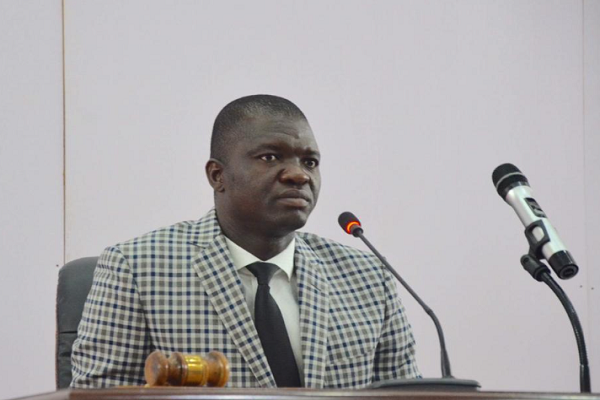A lawyer and human rights campaigner, Mr Lucky Aghedo, has expressed worry at the alleged detention without trial, of some Nigerian migrants in Italy.
Aghedo expressed the concern in a statement in Lagos on Saturday.
He said that some Nigerian and other African migrants had been in custody in Italy over the years without trial while others had been serving long sentences.
“According to an Italian local newspaper, Gazzetta di Reggio, report on April 27, 2022, no fewer than 36 Nigerians of Niger Delta origin, were arrested on grounds of different allegations ranging from credit card fraud to cultism, termed mafia in Italy.
“Since this widely publicised mass and coordinated arrest, as others had previously been detained, the suspects have not been tried.
“Most, unfortunately, these inmates lack a basic understanding of the language and resources for legal aid.
“Mafia cases are similar to terrorism charges, which carry lengthier sentences,” the lawyer said.
He said that while some elements of criminal involvement could not be denied for some of the detainees, others were likely innocent.
“These innocent parties have regular and permanent jobs, and they may have been roped in due to certain association; hence, these cases should be judged on individual merits rather than place all suspects and detainees under one straight jacket,” he argued.
The rights activist added that detaining those who might be complicit, for a prolonged period without trial, breached fundamental human rights.
He urged that in line with the European Convention on Human Rights, Article 5, Section 1 C and 3, the suspects should be tried speedily or released if there was nothing incriminating to warrant their detention.
“Prevention of crime is justification for arrest and restraint of liberties. However, there ought to be a structure for suspects to be tried conclusively within a reasonable time.”
According to Aghedo, some Nigerian migrants had also since been alleged to be carrying out cultism in Italy, flashing machetes and other dangerous weapons of intimidation.
The rights activist said that Italian Government ‘rained down on them with a heavy hand’.
Aghedo alleged that the system allowed some migrants residence permits, mostly through asylum process, but failed to create a system integration process, as obtainable in some other countries.
“Hence, many migrants resort to hawking, begging and other anti-social behaviours to the chagrin of host communities.
“One must take cognisance of the trauma and scars borne by many of the survivors of the dangerous crossings and trafficking.”
The lawyer said that the survivors ought to have received counselling or therapy to heal their damaged psychology.
“It is an issue that has exacerbated most of the anti-social behaviours.
“Furthermore, Africans love merriment. These young stars are excited to make it to Europe alive, seeing it as a second chance in life.
“Then, they gluttonously enjoy every vice offering such as parties and drugs. They will do all this in excess, fuelled by their youthful exuberance.
“Also, being all predominantly from the same region, along with sharing the same culture and experiences, it could be argued that they congregate in a place where they enjoy things in common: be it food, music and many other.
“Hence, it will be a miscarriage of justice to assume that whenever these individuals congregate in a place, it must be for cultism,” he said.
The lawyer said that there should be efforts to separate the culprits from the innocent.
He added that the terrible experiences of the migrants, some whom crossed the Mediterranean on the same boat or were rescued from the same boat, engendered camaraderie in them.
‘’It is a bond that will be totally wrong to be labelled a cult.”
According to him, Italy had been very hospitable to migrants over the years, but overwhelming influx of migrants eroded the kindness.
“However, these kinds of arrests, long detention and constant control and profiling, have caused tremor and fear among many.
“Since the trial is slow, it seems that detainees are tempted to take plea bargain.
“The risk is that some, out of frustration, may accept it, still risking long sentences, as they are vulnerable and negotiating from a point of weaknesses.
“Most unfortunately, the majority of these suspects are the bread winners for their families both in Italy and back home in Africa,” he said.
Aghedo called on human rights organisations to work with Italian Government to find a solution to the problem, to ensure justice and equity.
“More importantly is to ensure that others eschew anti-social behaviours which hopefully, will encourage peace and harmony between the host country, the suspects and the entire migrant community.”







